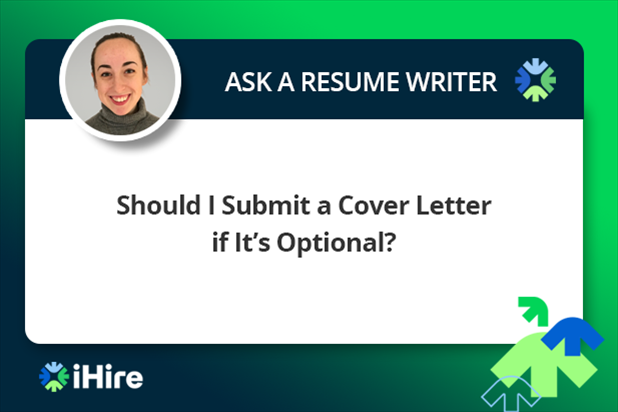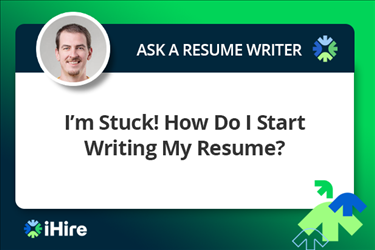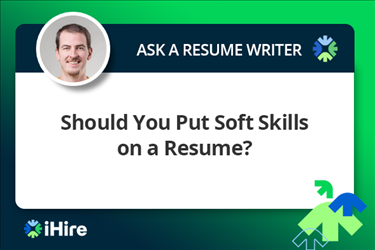Should You Submit an Optional Cover Letter? The Answer is Yes
The job application process is riddled with uncertainty, and one common dilemma job seekers face is whether to submit a cover letter when it is listed as optional. This article aims to answer that question by shedding light on the importance of cover letters in job applications and the potential drawbacks of not submitting one. We will also provide practical tips for crafting a compelling cover letter and share real-life examples of successful cover letters as well as expert opinions on the topic. So, let's dive in and explore the reasons why submitting an optional cover letter can significantly increase your chances of landing an interview.

The Importance of Cover Letters in Job Applications
Cover letters serve a vital purpose in job applications by showcasing the applicant's dedication and interest in the position. They complement resumes by offering a space to elaborate on one's skills, experiences, and motivations, providing context to the facts listed in a resume. As a result, cover letters can help create a more comprehensive picture of the applicant, ultimately increasing their chances of securing an interview.
Several studies highlight the impact of cover letters on interview chances. For instance, a study by ResumeGo found that job applications with tailored cover letters had a 53% higher callback rate than those without cover letters, emphasizing their significance in the application process. Despite these statistics, misconceptions persist about the importance of cover letters, with some job seekers underestimating their value and opting not to include them in their applications.
Reasons to Submit an Optional Cover Letter
Submitting an optional cover letter can be advantageous for job seekers in various ways:
- Demonstrates interest in the position : A well-crafted cover letter shows that the applicant has put in the effort to understand the job requirements and is genuinely interested in the position.
- Conveys professionalism and commitment : Taking the time to write a cover letter, even when optional, signals a high level of professionalism and dedication to potential employers.
- Helps the applicant stand out from the competition : Including a cover letter can differentiate an applicant from others who chose not to submit one, potentially improving their chances of being noticed by the hiring manager.
- Addresses potential concerns or gaps in the resume : A cover letter offers an opportunity to explain any gaps in employment, career changes, or other concerns that may arise from the resume.
- Personalizes the application : Tailoring a cover letter for the specific job and company demonstrates an understanding of the employer's needs and requirements, which can leave a lasting impression on the hiring manager.
Potential Drawbacks of Not Submitting a Cover Letter
Not submitting a cover letter, even when optional, can have negative consequences for the job seeker:
- Gives the impression of a lack of interest or dedication : Choosing not to include a cover letter may signal to the employer that the applicant is not fully committed to the position or lacks enthusiasm for the role.
- Risk of being overlooked in favor of candidates who submitted cover letters : In a competitive job market, not submitting a cover letter can put an applicant at a disadvantage compared to others who took the time to include one.
- Missed opportunities to address potential concerns : Not providing a cover letter means losing the chance to explain any discrepancies or concerns that may arise from the resume, which could negatively affect an applicant's chances of securing an interview.
- Not maximizing one's chances in the job market : In today's highly competitive job market, it is crucial for job seekers to take every opportunity to stand out and increase their chances of landing an interview. Not submitting a cover letter, even when optional, can hinder those chances.
Tips for Writing an Effective Optional Cover Letter
Crafting a compelling optional cover letter requires following certain best practices and guidelines:
- Personalize the cover letter for the specific job and company : Research the company's values, culture, and recent projects or achievements, and incorporate this information into the cover letter to demonstrate a genuine interest in the organization.
- Address the employer's needs and requirements : Make sure to review the job posting carefully and identify the key skills and qualifications the employer is looking for. Highlight how your experiences and skills align with these requirements and address how you can contribute to the company's success.
- Highlight relevant skills and experiences : Use the cover letter as an opportunity to elaborate on the specific skills and experiences that make you a strong candidate for the position. Provide concrete examples and anecdotes to support your claims.
- Maintain a professional tone and error-free content : Ensure your cover letter is well-written, free of grammatical errors and typos, and maintains a professional tone throughout.
- Make the cover letter engaging and memorable : Start with a strong opening that captures the reader's attention and use storytelling techniques to make your cover letter memorable and engaging.
"As a long-time admirer of XYZ Company's commitment to sustainability, I was thrilled to see the opening for a Project Manager on your team. With my background in environmental engineering and proven track record of managing successful green initiatives, I am confident that I can contribute significantly to your ongoing efforts to reduce the company's environmental footprint."
In conclusion, submitting an optional cover letter is an important step in the job application process that should not be overlooked. A well-crafted cover letter can demonstrate your interest in the position, convey your professionalism and commitment, help you stand out from the competition, address potential concerns, and add value by personalizing your application. By following the tips and insights provided in this article, you can maximize your chances of securing an interview and make a lasting impression on potential employers. So, don't hesitate – start crafting your optional cover letter today and increase your chances of landing that dream job.
A simple guide for writing the perfect cover letter
No one loves writing cover letters.
They can seem awkward or even boring when you’ve written many. And they are time-consuming.
So when a job posting includes the words “cover letter optional,” it can seem like a relief. With those three words, you are blissfully let off the hook on that arduous but tedious task. Right?
The bad news is that the cover letter is never really “optional.”
The only time you don’t need one is when the job description specifies: “No cover letters, please.”
For many years, I’ve advised professionals as they navigate their career searches. As the director of MBA Career Coaching at the University of Maryland’s Robert H. Smith School of Business, I help candidates get jobs in consulting and professional services, among other fields. Before this job, I spent several years as a recruiter for PricewaterhouseCoopers.
Today, in the wake of the “Great Resignation,” a lot of companies are scrambling to fill record numbers of employment vacancies. It’s a great time to be looking for work. And it may seem reasonable in this environment to assume that, as a jobseeker, you’re in the driver’s seat and don’t need to write those “optional” cover letters.
But a cover letter — a good cover letter — is worth the time and energy when you want the job. It introduces who you are in a way that goes beyond the resume, it demonstrates your interest in the position and the organization, and it inspires the reader to take action. The cover letter can be the difference between getting the offer or not.
A large percentage of today’s job postings either require a cover letter or make it optional. Only a small percentage will indicate no cover letters. That means you should be prepared to submit a cover letter as part of your application 80% to 90% of the time.
As a former recruiter, I know there are times when two candidates end up closely ranked in the hiring team’s estimation. In those times, a cover letter can make the difference and help you inch ahead of the competition.
Here’s my advice for writing a good one, without a ton of effort each time.
Create a boilerplate. This part does take time and effort. For the first paragraph: Write an introductory paragraph that you’ll adapt for each new role and each new company. For the second paragraph: Write out several of your skills, or competencies, in a skimmable, bulleted format. Each competency will be in bold type, with a sentence or two that tells a short story of how you have used this skill and what outcome it produced. Focus here on direct evidence — facts, not judgments. For the third paragraph, describe what drives you and what you’re like to work with. That is your value proposition. For that final, closing paragraph, restate your interest, thank the hiring team for its consideration and look ahead to next steps.
Customize, customize. That boilerplate is going to do so much heavy lifting. Using it, you’ll modify the introductory paragraph, asserting your interest in the role and the company. Then, you’ll select two or three of the bullet points from your boilerplate list to specifically highlight the skills mentioned in the job posting. The third and fourth paragraphs can likely remain just as they are. That’s the beauty of this strategy. It’s far less daunting to modify an old cover letter than to start from scratch each time.
Find an editor. It should go without saying, but a good cover letter is well-written and free of grammatical errors and other silly mistakes — like accidentally leaving in a reference to the last company you applied to. Achieving that requires a second pair of eyes or even a third. Enlist a friend or loved one who will be your editor, and be prepared to return the favor someday.
One final tip: Always re-read the job description once or twice. Make sure you know what the posting is asking for, so the cover letter speaks directly to that. And remember, it’s not about what you want the hiring team to know — it’s about what they need to know.
Dori Jamison is the director of MBA Career Coaching at the University of Maryland’s Robert H. Smith School of Business. Prior to coming to Maryland Smith, she worked for eight years as a recruiter for PricewaterhouseCoopers.

UCL Careers
Find Your Future

Optional Cover Letters: Are They Worth it?
By skye.aitken, on 15 July 2020
Read time: 4 minutes
Written by Emily Oliphant, Recruitment & Selection Advisor at UCL Careers.

A question that I’ve heard time and time again in Application Advice appointments is ‘So, the company have stated the cover letter is optional – do you really think it’s worth writing one?’.
I understand it can sometimes be a difficult dilemma. Cover letters take time, that’s a given. Especially when you’re applying to multiple roles, it can be a seriously time-consuming endeavour to write a tailored cover letter for each of them. However, in my opinion and from experience, the purpose of a cover letter is often misunderstood and the value of them disregarded . With that in mind I believe that, if possible, an optional cover letter should always be an option you decide to make most use of. Here’s why.
1.The purpose of a cover letter is to highlight your relevance
When you think about it, it doesn’t matter how much you tailor a CV to a job description, your CV will always be an entirely separate document to the job description. Your CV is entirely focused on you – your education, your experience, your skills – from top to bottom everything on that CV is about you. Turning the tables, you’ll recognise that the job description is really all about the employer. Their company, their job, the skills they deem essential. Therefore, without a cover letter there will always be a gap in how exactly your skills are relevant to the position you’re applying for.
A cover letter acts like a bridge. It is a connecting document that provides you with a platform to connect your CV to the job description because it offers the opportunity for you to explicitly explain how your skills will allow you to perform the responsibilities of the job.
Explaining the skills you have, how you developed them and how you can apply them to the responsibilities of the role is a three-step process that can’t really be achieved through a CV. By embracing this structure, you are painting a vision for the recruiter of you hitting the ground running and being able to perform the duties they want you to. This positive psychology is always worth taking the time to get across.
2. Further Detail
CVs can be crammed with skills and experiences but sometimes you’ll find that there just isn’t enough space for you to unpack some of your examples enough to highlight exactly how they put you in good stead to undertake the responsibilities.
Cover letters allow you to incorporate the STAR method (Situation, Task, Action and Result) to your examples – for more information on this topic you can watch our CareersLab episode on the STAR method or have a read of our recent blog post on it . Being able to go into more detail on relevant points will enhance your argument of your suitability and encourage the recruiter to believe that you are a good match to their person specification.
3. Commitment
Finally, taking the time to write a cover letter (where potentially others haven’t) will only ever display a positive quality – commitment. Having worked in recruitment for two and half years before joining UCL Careers, I can say with certainty that if you have taken the time to show you have researched the company , explained why you are attracted to the role and why your skills are suitable for the position, you will positively demonstrate that you are indeed driven to succeed in the application. This level of interest and dedication will rarely go unrecognised.
Therefore, in short, if you have the capacity – I undoubtedly believe that choosing to write a cover letter when given the option will only improve your application as a whole and should definitely be covered!
If you would like further information on cover letter writing please watch our CareersLab episode on Cover Letters . Furthermore, please feel to free to book a Applications Advice appointment to discuss a particular cover letter you have written in depth with an advisor.
Filed under Careers Advice
Leave a Reply
Name (required)
Mail (will not be published) (required)
Recently posted
- Interview with an Alum – Csongor Máthé and “being a self-starter” September 22, 2021
- Interview with an Alum – Maia Gummer and ‘Leaning In’ September 22, 2021
- Love Island careers advice is back August 23, 2021
- 10 questions with award-winning UCL Careers Extra student June 23, 2021
- 7 Signs That You Should Consider a Career in Accountancy June 17, 2021
Look for…
Find more blogs, want to contribute.
Please read our Guest Blogger Policy

- Internships
- Career Advice
How to Approach a ‘Cover Letter Optional’ Job Listing
Published: Apr 09, 2019

Have you ever been invited to a friend's birthday party and been told you shouldn't feel pressure to bring a gift? How often do you take this at face value? Do you assume your friend really doesn't want a present? Or do you think, "I'll just play it safe and get her something small to show I've thought of her?"
Job seekers faced a similar dilemma when greeted with the words "cover letter optional" in a job posting. If you've been in this position, you've likely wondered, "Are they just testing me? Do they really want me to submit a cover letter, or are they genuinely fine with not receiving one? And what will it say about me if I don't attach one?"
Read "optional" as "essential"
There is, of course, the chance that an employer has used the line "cover letter optional" because they honestly don't see much value in you attaching this document. But it's also entirely possible that recruiters give you the choice to submit or not to submit because they want to find out how keen you really are on the position.
Since you never know whether you're dealing with the first or second scenario, it's always safest to send a letter—even when doing so is not required and even when the job ad says nothing about it at all. The only time you wouldn't attach this invaluable document is if the posting explicitly requests that you don't.
Set yourself apart from the competition
First and foremost, submitting a cover letter when you don't have to shows that you really, truly want the job. If you're not willing to set aside an hour or two to craft a letter, recruiters might question whether you're really that motivated at all, and that won't reflect well on you.
Choosing to send a letter also offers hiring managers a preview of what's to come if they hire you—it shows that you're the sort of employee who’s prepared to go above and beyond and do more than the bare minimum. If you're being compared to similarly qualified candidates who didn't submit a letter, then this testament to your work ethic should give you an advantage over them. If a cover letter is potentially going to be the one thing that differentiates you from others, why wouldn't you attach one?
Demonstrate your soft skills
A cover letter also presents various other opportunities you don't want to miss out on. It's a chance to demonstrate strong communication skills, which are highly valued in almost every industry, and to say what you can't in your resume . In a letter, you can capture what it is about the role and the company that most appeals to you, showcase your unique personality, and make specific links between your skills and experience and the requirements of the position. Your resume offers a summary of your career history and qualifications; a cover letter acts as a bridge, showing how these details would translate to success in this particular job.
Make your cover letter work extra hard
If hiring managers include the line "cover letter optional" in a job posting, it might be because they don't want to be inundated with a heap of extra reading that doesn't add value. So, if you're going to give them something they haven't requested, make sure it's worth their time to engage with it. Compile a document that's customized, original, and attention-grabbing, and avoid making all the common cover letter mistakes . Never start with "To Whom It May Concern" (personalize the greeting with the hiring manager's name instead), stay away from clichés and tired buzzwords , and don't just repeat what's in your resume.
It's also best to keep the emphasis on the company's needs and how you can add value, rather than on what the job would bring to your life. And, of course, you should make sure your letter is free of any errors and is as concise as possible—the leaner, the better, especially if it's only optional.
A final note
If you're not sure where to start, it's a good idea to use one of the many cover letter templates available online to assist you. Cover letter templates are especially helpful in that they typically offer step-by-step guidance and even suggest job-specific keywords to include to beat applicant tracking systems that screen for certain phrases.
Since 2005, LiveCareer has been helping job seekers create resumes and cover letters via its free resume builder and cover letter builder tools. Also available are collections of free, professionally written resume templates and resume samples , all of which are organized by industry and job title.
- Search Search Please fill out this field.
- Career Planning
- Finding a Job
- Cover Letters
Do You Need a Cover Letter When It's Not Required?
When you do (and don't) need a cover letter to apply for a job
:max_bytes(150000):strip_icc():format(webp)/ADHeadshot-Cropped-b80e40469d5b4852a68f94ad69d6e8bd.jpg)
Why Write a Cover Letter?
Reasons to include a cover letter, reasons not to include a cover letter.
- Tips for Writing a Cover Letter
Do you really need a cover letter if a company doesn't ask for one? Writing a lot of cover letters during a job search is often both challenging and time-consuming. Because of this, it's not surprising that applicants often hesitate to include a cover letter when it is not explicitly required by an employer.
If you're wondering if you should include a cover letter, the short answer is yes. That said, there are a few exceptions.
You should almost always submit a cover letter , even if the company doesn't ask for one.
Here's what you need to know about the value of cover letters, along with the situations where you can skip a cover letter.
If you're serious about landing the job, a well-written cover letter gives you a chance to sell yourself to the employer in a narrative format, and explain why you are an ideal candidate. Taking the time to match your qualifications to the job can help you get selected for an interview.
All of your efforts in the cover letter will help hiring managers do their job of screening applicants, and may get your resume a closer look.
A cover letter also affords you the opportunity to highlight your strongest qualifications.
An effective, well-written, and customized cover letter also makes it clear that you are highly interested in the job. That's because it shows the hiring manager that you want the job enough to go the extra distance.
To Share Extra Information
A cover letter gives you an opportunity to include details that your resume does not contain. For example, if you are applying from a distance, your cover letter will enable you to present a rationale for relocation and to mention that you will be in the area shortly for a possible interview.
To Explain a Gap
Gaps in employment with reasonable explanations can also be addressed in your letter. A cover letter is also an ideal place to provide specific examples that prove you have the skills and experience listed on your resume.
The Employer May Expect One
Additionally, some employers expect to receive cover letters even though they did not stipulate that a cover letter was required in their job advertisements.
Candidates who don't take the time to compose a letter are often viewed as less motivated for the job.
In many cases, employers won't even look at a job application that doesn't contain a cover letter or letter of interest.
For some jobs, you won't need a cover letter to apply. Some employers don't accept cover letters as part of the application process. For other positions, there may be no way to submit one. If a cover letter is optional, it's better to skip it if you don't have the time to compose a well-written one.
When the Employer Doesn't Want One
If the job application instructs that you should not include a cover letter, then it's definitely best to follow directions so as not to annoy your potential employer.
When You Don't Have Time
No letter is much better than a poorly written one. A well-composed cover letter serves as a sample of your writing ability, but the opposite is also true. If you don't have time to write a well-crafted cover letter that pitches your skills and positions you for the job, forego the effort.
When There's No Way to Submit One
Also, if the company asks you to submit your application through an online platform, and there is no place for you to submit a cover letter, don't worry about it.
Tips for Writing a Cover Letter That Will Impress
When you do include a cover letter with your resume, it's important to make it a good one. Here are tips for writing a cover letter that will make the best impression and add value to your application.
Kelly Miller. / The Balance
- Make it targeted. Be sure to compose a targeted letter that is written with the job listing in mind. Focus on the skills and abilities you possess that make you a strong fit for the specific job.
- Keep it short. Make sure that your letters are concise (no more than one page topping out at five paragraphs) and that every statement you make conveys something significant about your qualifications for the candidacy.
- Go beyond your resume. Avoid simply repeating your resume. Provide examples not listed in your resume, and expand upon things mentioned only briefly in your resume. Your cover letter should have a distinct purpose regarding your application.
- Edit, edit, edit. Errors in your cover letter can hurt your chances of getting an interview. Errors make you look sloppy, or worse, not educated. Be sure to thoroughly read your letter before submitting it. Consider asking a friend or colleague to read it as well to check for typos, grammatical errors, and confusing language.
Key Takeaways
- Writing a cover letter makes the hiring manager's job easier, by highlighting exactly why you're the right match for the role. That gives your application an edge.
- Even if the company doesn't specifically request a cover letter, it's a good idea to write one if you're interested in the role at hand.
- Skip a cover letter if the employer says not to write one, or if there isn't a place to include one in an online application form.
- Business Spotlights
- Career Development
- Career Newsroom
- Email and Letter Templates
- Entry Level
- iHire Updates
- Industry Insights
- Interviewing
- Job Applications
- Motivation and Inspiration
Resumes and Cover Letters
- Salaries and Benefits
- Social Media
- Workplace Tips
Like our content?
Get our monthly newsletter and other helpful communications for your job search and career.

We value your privacy
- Job Seeker Resources
- Last Updated: Originally Published: June 29, 2023

Ask a Resume Writer: Should I Submit a Cover Letter if It’s Optional?
Does anyone really like writing cover letters? After spending hours on your resume and filling in countless fields in an online application, summoning the energy to write a cover letter can feel impossible – especially if you’ve heard that recruiters rarely even read them.
Furthermore, when searching for jobs, you may come across an ad that either doesn’t mention cover letters or says, “cover letter optional.” In that case, it’s fine to skip the cover letter altogether, right?
In our What Candidates Want: 2023 Job Seeker Report , a surprising 25% of candidates who answered our survey said they “always” include a cover letter, even if the job posting said it is optional. Should you follow suit and take the time to write a cover letter if it’s not required? We asked Jenna Sylvester, Certified Resume Writer at iHire, to weigh in with their thoughts.
Should I Send a Cover Letter if It’s Not Required?
“Yes! I realize it takes time to write a cover letter, but it’s worth it if you really want the job,” advised Sylvester. “If you have an opportunity outside of your resume to further promote yourself as the right fit, you should take it. Plus, you can showcase more of your personality in your cover letter.”
You can also include certain types of information in your cover letter that wouldn’t normally go on your resume, such as your willingness to relocate, if you were referred by someone who works at the company, or a memorable personal anecdote.
When you take the time to write a tailored cover letter, you also show that you’re genuinely interested in the job and not mass-applying to openings without much thought. In your cover letter, you can zero in on your specific skills and experience that align with the job and make that information the core focus.
Ready to Write a Winning Cover Letter?
Create your free account to access our cover letter builder and more tools for your job search.

Job Seeker Sign In
Sign In With Google
Sign In With LinkedIn
Sign In With Facebook
We Value Your Privacy
“When you see ‘cover letter optional’ in a job ad, consider it an opportunity to shine , not an excuse to skip it entirely,” added Sylvester. “If you send in a cover letter and no one else does, you’ll stand out. The employer may have made cover letters optional as a way to gauge how serious their applicants are about the open position, too.”
If the job ad doesn’t mention anything about cover letters, it’s safe to assume they are optional, and you should include one. If the job ad explicitly says not to include a cover letter, be sure to follow directions (otherwise, you may stand out for the wrong reasons).
Providing a Cover Letter When Optional
If a cover letter is optional, is there a certain way you should go about writing it?
“ Follow best practices when submitting an optional cover letter, just as you would if it were required. Tailor it to the job you’re applying for, highlight your most relevant skills and experience, and most importantly, keep it brief!” Sylvester recommended. “Three short paragraphs should do the trick.”
Don’t simply copy and paste parts of your resume into your cover letter, either. Again, this is an additional opportunity to promote yourself and tell employers why they should hire you for the job.
Ready to write a cover letter that impresses hiring managers? Get even more expert advice in our Resource Center , or let our team of certified resume writers create one for you .

Search for iHire Jobs
Related jobs, related resources.

Ask a Resume Writer: I’m Stuck! How Do I Start Writing My Resume?

Elevate Your Job Search With a Killer Cover Letter [Video Webinar]

Ask a Resume Writer: Should You Put Soft Skills on a Resume?

Achievements: Keys to a Kickass Resume [Video Webinar]
Find the Right Job Faster
- Get personalized job matches sent to your inbox every day
- Connect directly with employers before your competition
- Advance your career with expert advice on interviewing, salary negotiation, and more

Your Privacy
This site uses cookies to provide you with a more responsive and personalized service. By using this site you agree to our use of cookies. Please read our cookie notice for more information on the cookies we use and how to delete or block them.
- Resume Templates
- Resume Examples
- Free Resume Builder
- How to Write a Resume
- Resume Format
- Resume Packs
- Cover Letter Templates
- Cover Letter Examples
- Free Cover Letter Generator
- How To Write a Cover Letter
- CV Templates
- CV Examples
- Free CV Maker
- Resume Help
- Cover Letter Help
- Job Interview
- Career Advice
The Optional Cover Letter: Do You Still Need to Add One?
We all want to put our best face forward when we are applying for a job. This includes supplying a top-notch resume and an engaging cover letter . But what if the job ad states “cover letter optional”? Do I still need to provide one or not? Will I lose some potential brownie points in the eyes of the employer?
Career experts have done some research around optional cover letters and how you should treat such requests. Let’s take a closer look at this hot topic.
Should You Write a Cover Letter if It is Optional?
Yes, it’s best to provide a cover letter even if it’s stated as optional. Why? Because it’s another “touchpoint” between you and the potential employer. Use it to draw more attention to your resume (and skill set respectively) and give a preview of your personality. Candidates who provide a professionally written cover letter are usually viewed as more professional and interested in the position than those who don’t.
Also, actually taking the time to write a cover letter can set you apart from the competition. One small-scale study, done by a recruiter, suggests that 73% of applicants don’t bother filing a cover letter or even write a short introduction in an email. So doing the courtesy of writing a formal or more informal email cover letter can be pretty refreshing for some employers.

OK, But Why State ‘Optional Cover Letter’ At All?
If data suggests that employers prefer cover letters, why some companies state that the “cover letter is optional”? That’s totally confusing. Yeah, we get that.
But there are two possible reasons for that:
- By “cover letter optional”, some companies mean that you should write a less formal letter of introduction (email), rather than attach a “traditional” cover letter. They still expect more than a resume, sent without any further notice.
- Others treat the “optional” thing as a quick applicant test. Many large companies, receiving hundreds of submissions, may want to easily weed out those candidates that don’t put in any extra effort. A company may begin its candidate analysis process by eliminating those who are not interested in the job enough to submit a cover letter. In some cases that could be potentially hundreds of letters or emails that they don’t need to waste time on.
The bottom line: If a cover letter is optional, it’s not an excuse to skip it altogether.

Are cover letters necessary when you are applying via an on-site hiring form? It depends. Some job application forms, however, provide extra questions that allow you to talk about your personality, skills, and reasons for applying. But even in such cases, it’s best to add a quick introductory letter if you feel like you’ve got a few more things to say.
Does The Cover Letter Content Matter?
So, if we have already established that most employers want you to provide a cover letter, along with your resume. But do you need to bother making the cover letter content relevant to the position?
Oh yes, you do! The purpose of a cover letter is not simply to “check a box” with the employer – it’s a sales tool to persuade them to meet with you for an interview . For that to happen, your letter has to be personalized to the job.
- Research the hiring person’s name and add it to the letter
- Specify if you have a “shared connection” (even on LinkedIn)
- Reference a recent company event or accomplishment
- Explain how the company values align with yours
To personalize your cover letter, do some company research in advance.

Also, treat your cover letter as an opportunity to explain why you are interested in taking on the position – something that you cannot really do with your resume. When your cover letter is done well it may be the deciding factor for you landing an interview with the company.
What Else Should Be Included In An Optional Cover Letter?
Optional or not, a cover letter should do two things well:
- Communicate your interest in the role
- Highlight your “fit” for the opportunity
To convey the above, the lengths of the resume may not be enough.
In essence, a cover letter is an opportunity to showcase how you use your core competencies (listed as skills on your resume) in your day-to-day work. For example, if the job on offer is to support a certain area, such as product development, then you can use your cover letter to mention how you would be able to fit in with their plans. Mention how you previously led product development within your current company, what results you’ve achieved and how you plan to replicate this success if given a chance. You can check cover letter examples on your website to get a better sense of how to convey your skills via extra context.
Apart from the above, a good cover letter should include:
- A strong opening
- Two-three paragraph, centered around your skills
- Closing statement with a call-to-action
What If You Don’t Send In An Optional Cover Letter?
You might not have enough time to write a decent cover letter to go with your job application. Or you are facing the worst writer’s block of all time. What happens if you don’t end that optional cover letter after all?
If you are short on time, focus on your resume instead. Put your available time into making sure it is perfect and send it in. Also, prioritize answering other questions on the job application platform.
Finally, instead of a full-length letter, provide a quick personalized note that briefly introduces you and expresses your interest. You can re-use a variation of your personal statement . For example, as a recent graduate applying for a business analyst job you may write something like this:
“Good day, [Name], I’m looking forward to becoming part of the XYZ BA Office and applying my skills in process analysis, requirements gathering, quantitative and qualitative research, to help XYZ maintain its position as a leader in industry X”.
Also, for the next time around, prepare a generic cover letter — a pre-written cover letter template you can quickly personalize to different job offers. Having one will say you heaps of time (and stress)!
Conclusion
When a cover letter is optional, a lot of job applicants may be tempted to skip it. Don’t be one of them! A cover letter is a great means to convey your interest in the job and provide a quick “preview” of your personality and work abilities. Given that a lot of employers now seek out “cultural fits”, rather than applicants who tick all the job requirement boxes, a well-written cover letter can majorly increase your chances of landing a job with a prestigious employer!

Elena runs content operations at Freesumes since 2017. She works closely with copywriters, designers, and invited career experts to ensure that all content meets our highest editorial standards. Up to date, she wrote over 200 career-related pieces around resume writing, career advice... more
you might also like

6 Best Fonts for a Cover Letter (And How to Choose One)

What is the Purpose of a Cover Letter? Simple Answer

How to Include Salary Requirements in a Cover Letter?

4 Best Cover Letter Opening Lines to Make a Mark in the First Paragraph

148 strong verbs to use in your resume and cover letter
Leave a response cancel reply.
Bentley University strives to make web content accessible to all users. If you are having difficulty accessing information and need this content in an alternate format, please contact The Pulsifer Undergraduate Career Development Center at 781-891-2165 or [email protected] .

- What is a Career Community?
- Analytics/Actuarial
- Healthcare/Biotech/Pharma
- MarComm / Media
- Non-Profit/Public Policy
- Professional Sales
- Real Estate
- Sustainability
- African American/Black/Brown Students
- Asian Students
- First Generation Students
- First-Year & Sophomore Community
- Hispanic/Latinx Students
- International Students
- Students with Disabilities
- Alumni on Linkedin
- LinkedIn Online Course
- LinkedIn Learning
- Credit Internship Information
- Featured Jobs
- Micro-Internships (Pangea)
- Micro-Internships (Parker Dewey)
- Hire Our Students
- Career Closet
- Academic Resources
- Big Interview Mock Interview System
- Booking an Interview Room
- Career Planning
- Dress for Success Guide
- General Resources
- Graduate and Law School Information
- Interstride
- Job Postings & Career Planning
- Professional Associations and Organizations
- Retrieve Your Unofficial Transcript/Academic Record
- Student Organizations
- Using AI in Career Development
- Vault Guides
- Vmock Smart Editor Guide
- Your Major by the Numbers – 2023 Placement Data
- How HIRE Education Works
- Career Design Seminars (CDI 101, 201, 301)
- The Board of HIRE Education
- 2023 Student Outcomes
- Accountancy Majors
- Actuarial Science Majors
- Business Economics Majors
- Computer Information Systems Majors
- Corporate Finance & Accounting Majors
- Data Analytics Majors
- Economics-Finance Majors
- Finance Majors
- Management Majors
- Marketing, Communications, & Media Majors
- Our Services
- Employment Statistics
- Student Colleagues
- Contact Us!
Should You Write a Cover Letter if it is Not Required?
- Share This: Share Should You Write a Cover Letter if it is Not Required? on Facebook Share Should You Write a Cover Letter if it is Not Required? on LinkedIn Share Should You Write a Cover Letter if it is Not Required? on X
When applying for jobs, writing cover letters can seem like a hassle, especially when you are applying to as many jobs as you can. Sometimes, you may come across an application where it says “optional” next to the cover letter. In this case, should you write a cover letter? The answer is yes because writing a cover letter even when it is optional shows that you are hardworking, care about the position, and take initiative. There are lots of other reasons why writing a cover letter can set you apart from other job applicants.
Writing a cover letter shows that you care
A lot of job postings nowadays are Easy Apply. What this means is that all you must do is click a button and submit your resume. As a result, companies are getting a ton of job applications. One way to make your application stand out is by writing a cover letter. Writing one shows that you took the time to research the company and are really interested in the position. Showing employers that you care and are willing to take the time to submit a cover letter may very well be the reason you get an interview or not.
Allows you to highlight your personality
Resumes only highlight your accomplishments and skills. By reading a resume, an employer won’t get a feel of who you are as a person in terms of personality. To combat this, you can write a cover letter. A well-written cover letter can convey the type of person you are and show the employer how you would fit in on the team. Soft skills are just as important as technical skills and one way to highlight your soft skills is through a cover letter.
You can mention something that doesn’t fit on your resume
Resumes are only supposed to be one page long, so you might not be able to fit everything on it. As a result, you can use a cover letter to talk about experiences that you couldn’t highlight on your resume. For instance, maybe you’re involved with a club on campus but because of your professional experiences, you cannot highlight it on your resume. Writing cover letters allows you to show off other experiences and activities that you are not able to do on your resume.
Overall, it is ultimately your decision if you want to write a cover letter if it is optional. However, writing one does show that you care, allows you to highlight who you are as a person, and lets you show off experiences that you otherwise would not be able to on your resume. While applying for jobs, keep these thoughts in your mind when you see the word “optional” next to a cover letter!
Insights gathered from: https://www.themuse.com/advice/cover-letter-optional


Are Cover Letters Necessary?
Do cover letters matter these days? It depends on who you ask.
Some recruiters love learning more about each job applicant, while others find the practice antiquated. So should you write one if it might not even be read at all?
Keep reading for advice from career coaching experts, plus:
- When you should (and shouldn't) write a cover letter
- What to do when a cover letter is "optional"
- Tips for writing an effective cover letter
- What an effective cover letter template looks like
Do I Need a Cover Letter ?
In most cases, yes—you should submit a cover letter with your resume.
While the cover letter has increasingly become a divisive topic among recruiters and job seekers , it's still often listed as a requirement on job applications .
But regardless, many recruiters still think cover letters are important.
According to a 2023 study by recruitment website Zippia , more than a fourth (26 percent) of recruiters "always read cover letters " and think they're an important component of the hiring decision. And almost half (45 percent) said that not including a cover letter could get your application rejected.
So in most cases, it's best to be cautious and include one.
In short, including a cover letter will almost never hurt your job search —but it can help.
Here's how:
- It can help you stand out from the crowd . Recruiters read through countless resumes for just one role. If you have similar qualifications as other candidates, a cover letter allows you to showcase your personality and unique skills.
- It shows you're willing to go the extra mile . Searching for a new job is already a lot of effort, so it may be difficult to rationalize writing a customized cover letter for each role. But the Zippia study found that 61 percent of hiring managers consider a customized resume (with a cover letter, portfolio link, etc.) the "number one tactic for applicants to boost their chances of getting a job."
- You can address potential biases . In a perfect world, recruiters wouldn't count you out based on things like employment gaps or " job hopping ." Career coach Marlo Lyons recommends using your cover letter to "fill in any gaps" and provide context about these types of situations so recruiters don't get the wrong impression.
When You Should Include a Cover Letter
It's ultimately up to you whether you include a cover letter.
Octavia Goredema, career coach and author of Prep, Push, Pivot , says that the decision to submit a cover letter hinges on "where you are in your career journey and your personal career goals."
In addition to when it's a required part of the job posting, here are scenarios where it's in your best interest to submit one:
- If someone referred you to the job : According to Goredema, "If you were referred to an opportunity by someone at the company or have a personal history that correlates with the role, a cover letter enables you to share that."
- If you want to add additional information : Say the job you're applying to requires candidates to live on a specific coast. If you don't currently live in the area but are willing to relocate, mention that in your cover letter so you aren't automatically rejected based on your current location.
- If you're changing careers : Goredema recommends writing one "if you're in the early stages of your career or making a professional pivot. A cover letter provides the opportunity to add additional context to the information included in your resume."
- If you don't have any previous work experience : If you're new to the workforce, you may not have any applicable previous positions to include on your resume. Use your cover letter to highlight transferrable skills and explain why you think you'd still be a good fit.
Lastly, Goredema suggests that "if this is your dream job, a cover letter provides the space for you to explain with impact and highlight what you do best."
Debra Boggs, founder and CEO of D&S Executive Career Management, adds: "As long as a cover letter is well-written and error-free, it will never hurt your chances of winning an interview."
So the more important the role is to you, the more effort you should put in.
When You Shouldn't Include a Cover Letter
There are certainly times when you should send a cover letter with your resume—but are there times when you shouldn't send one in? Here are a few instances:
- If the application platform doesn't have a space to upload one : If there isn't a space for you to attach your cover letter or other supporting documents, don't sweat it. This means that other applicants won't be able to send one either.
- If the job posting doesn't require one : If the post specifically states that you shouldn't include a cover letter, it's not a trick. The recruiter likely doesn't plan to read it, so it's best to reserve your time for other job search activities .
- If you aren't a strong writer : Lyons recommends forgoing a cover letter if you aren't a good writer and don't have anyone to help you. "The cover letter could be your first impression, and a badly written one—especially with grammatical errors—could make recruiters not want to screen you for the job."
- If you don't have time : Strapped for time? Goredema suggests "[focusing] on your resume and the application requirements versus haphazardly throwing together a few sentences just to meet an application deadline."
What To Do When a Cover Letter is 'Optional'
"Optional" cover letters can feel like a trick. You want to show the recruiter you're interested in the role, but you don't want to waste your time if it isn't necessary.
Lyons recommends skipping the optional cover letter "if your resume and LinkedIn profile are complete and no further explanation is needed."
However, it can be helpful to write one if "your resume doesn't tell the whole story about you." (Think resume gaps or career changes.)
Goredema believes it can be helpful to include a cover letter, regardless of whether it's a requirement. "Why not take the opportunity? It may help you to stand out. Going the extra mile by sending a well-written, personalized cover letter can only work to your advantage versus working against you."
So it can be helpful to put in extra effort if you have more to add to your application. But you shouldn't include a subpar cover letter just for the sake of it.
7 Tips for Writing an Effective Cover Letter
Regardless of your feelings toward the now-controversial cover letter, you'll likely find yourself writing one for at least some of the jobs you apply to.
Here's how to draft one that actually grabs a recruiter's attention:
1. Keep Things Short
Lyons suggests writing "three to four paragraphs at most, with two to three sentences in each paragraph."
Goredema adds: "Avoid long rambling sentences and keep your letter concise to make it easy to read."
Even if a particular recruiter loves cover letters, they might sift through hundreds of applications to find the right candidates. So it's best to be brief.
2. Follow the Rules
Some recruiters will ask you to include a portfolio link, send the cover letter via email, ask you to answer specific questions, etc. Be sure to fully read the job post's requirements—you don't want to be counted out for failing to follow directions.
3. Don't Repeat Your Resume
Lyons cautions repeating information the recruiter already has access to. Instead, "Tell the story of you—something important that you did not cover on your resume and how that story connects to the current position."
Think of it as connecting the dots between your experience, skills and capabilities. Explain why you'd be a good fit for the role rather than repeating the skills section of your resume .
4. Use Active Voice and Action Verbs
With active voice, the subject of a sentence performs the action. Passive voice puts more emphasis on the object of the sentence.
Using active voice is more direct and straightforward. Plus, it helps keep things brief.
Aim to use active voice throughout your resume and cover letter. This will help you sound clear and confident.
Here's an example of passive voice, plus how to fix it to use active voice:
- Passive voice : The treats were eaten by the dogs.
- Active voice : The dogs ate the treats.
If you struggle with writing in active voice consistently, think about the action verbs you'd use to describe your skills and experiences.
For example, instead of "I was tasked with x," you could say, "I managed x."
5. Be Specific
Include specific examples (i.e., instead of "I'm a team player," allude to a situation where you were a team player). If you've ever taken a writing course, you've probably heard the advice "show don't tell." The same advice applies to your resume and cover letter.
You could say "I have marketing experience," but what does that communicate to the reader? Not much.
Be specific about your experience and accomplishments. Instead, say "I led a marketing campaign that increased quarterly newsletter sign-ups by 40%."
6. Proofread
Check your cover letter for grammar and spelling mistakes before submitting it to avoid a professional faux pas.
Use spellcheck or an external app like Grammarly, which is also compatible with web browsers.
7. Customize It
At best, a generic cover letter is boring or a little awkward. At worst, it can be unprofessional if what you wrote about has nothing to do with the job you're applying for.
Think about it this way: your cover letter might be the deciding factor between you and another candidate with the same skills and experience. So you want to grab the recruiter's attention.
You don't need to spend tons of time rewriting your cover letter for every job application, though. Here are a few things you can do to stand out:
- Address the hiring manager or recruiter by name (you can sometimes find this information on the LinkedIn job post)
- Include the company name and job title
- Mention what you like about the specific company and its culture
- Detail skills and experience specifically mentioned on the job post
Boggs advises to "create a template that you can easily customize to include the relevant skills and experience for each job and employer."
Read on for inspiration for your own template.
Cover Letter Template
It can be time-consuming to write a new cover letter for every job application. Here's a template you can customize for different positions:
Dear [name of recruiter, "hiring manager"] , I saw the job posting for [exact title of role] and am excited about the opportunity. [1-2 sentences detailing why you're interested in the role/company.] In my previous role, [brief description of your accomplishments beyond what your resume states.] I also have [1-2 sentences detailing relevant experience, including specific skills and level of proficiency.] [If applicable: include a short paragraph with a link to your portfolio or any other relevant links.] Thank you for your time—if you'd like to schedule an interview, please feel free to contact me [brief description of the best time and method for contact.] Sincerely, [Your Name] [Phone Number] [Email]
Cover Letter FAQs
Still wondering if you need a cover letter for your specific situation? Or if recruiters actually read every cover letter? Read on for answers.
Do I Need a Cover Letter for a Part-Time Job?
The same advice applies to part-time jobs—cover letters aren't always necessary, but they can help you stand out. If you're especially interested in a part-time role, it's a good idea to submit a cover letter.
Do I Need a Cover Letter for an Internship?
Many people who apply for internships don't have significant prior work experience, so a cover letter is especially helpful here.
Instead of previous jobs, you can talk about:
- Your education
- Extra-curricular activities
- Transferrable skills
- Volunteer experience
You can include similar points if you're looking for an entry-level job and don't have prior work experience.
Can I Use AI To Write a Cover Letter?
Proceed with caution when using ChatGPT or a similar tool to write content for you. Employers may be using AI content detectors to identify which candidates used a shortcut.
AI programs like ChatGPT create content based on their existing libraries, so content is never really "new." Meaning it's impossible to tell if you're accidentally plagiarizing someone unless you heavily edit the chatbot's answers.
Goredema points out a potential pitfall in relying too heavily on AI: "If your goal is to get an interview, you don't want there to be a huge gap between how you communicate on paper versus how you communicate in person ."
Here are a few ways you can use AI to add to the writing process :
- Checking for active voice
- Adding action verbs
- Creating a rough draft
- Checking your writing tone
Do Recruiters Actually Read Your Cover Letter?
The big question—is the effort behind your cover letter worth it? Again, there's no perfect answer.
The most important thing is to ensure hiring managers have all the information they need to fairly consider you for a position.
Boggs cautions: "Remember, not all recruiters and hiring managers read cover letters, so
make sure to include all your relevant qualifications and accomplishments
in your resume as well, so these details don't get missed."
But there are other creative ways to stand out apart from a cover letter.
According to Goredema, "The general feedback I hear from the recruiters I work with is that a resume accompanied by their LinkedIn profile supersedes a cover letter because they will tell a recruiter at first glance what they need to know about a candidate."
So, are cover letters really necessary these days?
Lyons says that recruiters primarily care about two things:
- "Does an applicant have the skills and capabilities to do the job?"
- "Will the applicant fit the culture of the team and the company?"
Cover letters can help you stand out among a sea of applicants or explain difficult job situations—so in most cases, it's helpful to include one with your resume.
But whether you decide to send a cover letter with your resume or not, be sure the recruiter has all the information they need to be confident about you and your experience.
Related Articles
- 6 Tips for Crafting an Executive-level Resume
- Seven Red Flags To Look Out for on a Job Ad, According to Business Experts
- How to Ask for a Raise in 7 Steps
Start your unlimited Newsweek trial


IMAGES
VIDEO
COMMENTS
Yes. Even if a cover letter is optional, any applicant who takes the time to write and submit one anyway — especially a thoughtful, well-written, spell-checked letter — will make a good impression, both experts agree. "When the majority of people take the easy way out, and don't submit a cover letter, then writing one can make a ...
Only 26% of recruiters will "deduct points" from candidates who don't include an optional cover letter, according to a survey conducted by ResumeGo. But many, though not all, hiring professionals still read and consider cover letters. And you don't know what the particular recruiter or hiring manager for this job will do.
Notwithstanding the above, the only time you should submit a cover letter is when you have valuable information to share that's not conveyed in your resume. I've hired many candidates based on ...
The Answer is Yes. Feb 08, 2023. The job application process is riddled with uncertainty, and one common dilemma job seekers face is whether to submit a cover letter when it is listed as optional. This article aims to answer that question by shedding light on the importance of cover letters in job applications and the potential drawbacks of not ...
What optional really means. If a job posting says submitting a cover letter is optional, take this to mean that a cover letter would be a welcomed addition to your application and also, take it as an opportunity to show the employer not only your initiative but your writing skills. An optional cover letter ultimately leaves the decision up to ...
Here are some benefits of including a cover letter in your job application: 1. They showcase your personality. Cover letters typically reveal insights into a candidate's values, character traits and outlook on work. Many hiring managers prefer candidates who align with the organization's culture, so highlighting your unique personality in your ...
1:07. No one loves writing cover letters. They can seem awkward or even boring when you've written many. And they are time-consuming. So when a job posting includes the words "cover letter ...
With that in mind I believe that, if possible, an optional cover letter should always be an option you decide to make most use of. Here's why. 1.The purpose of a cover letter is to highlight your relevance. When you think about it, it doesn't matter how much you tailor a CV to a job description, your CV will always be an entirely separate ...
In a letter, you can capture what it is about the role and the company that most appeals to you, showcase your unique personality, and make specific links between your skills and experience and the requirements of the position. Your resume offers a summary of your career history and qualifications; a cover letter acts as a bridge, showing how ...
Even if submitting a cover letter is optional, doing so shows your passion and proactive approach to the role. It shows that you have put some thought into creating a personalized letter and are ...
Cover letters, are they still a must-do in 2021? Especially when the job ad has this glaring *cover letter is optional* note. Should you breeze out and skip ...
Cover letter tips, templates, and examples—from great opening lines to real samples that actually worked. ... 5 Reasons You Should Write a Cover Letter—Even When the Job Description Says It's Optional Cover Letters. by Jaclyn Westlake 7 Ways Job Searching Will Be Different in 2021 (and How You Can Adapt) Finding a Job. by Regina Borsellino
For some jobs, you won't need a cover letter to apply. Some employers don't accept cover letters as part of the application process. For other positions, there may be no way to submit one. If a cover letter is optional, it's better to skip it if you don't have the time to compose a well-written one.
Here are 15 things to avoid when writing a cover letter with tips and suggestions of what you can do instead: Not following instructions. Using the wrong format. Discussing why you are looking for a new position. Using the same cover letter for every application.
The employer may have made cover letters optional as a way to gauge how serious their applicants are about the open position, too.". If the job ad doesn't mention anything about cover letters, it's safe to assume they are optional, and you should include one. If the job ad explicitly says not to include a cover letter, be sure to follow ...
So, should you bother to write one? Yes. Even if a cover letter is optional, any applicant who takes the time to write and submit one anyway — especially a thoughtful, well-written, spell-checked letter — will make a good impression, both experts agree. "When the majority of people take the easy way out, and don't submit a cover letter ...
But there are two possible reasons for that: By "cover letter optional", some companies mean that you should write a less formal letter of introduction (email), rather than attach a "traditional" cover letter. They still expect more than a resume, sent without any further notice. Others treat the "optional" thing as a quick ...
The answer is yes because writing a cover letter even when it is optional shows that you are hardworking, care about the position, and take initiative. There are lots of other reasons why writing a cover letter can set you apart from other job applicants. Writing a cover letter shows that you care. A lot of job postings nowadays are Easy Apply.
When you should (and shouldn't) write a cover letter; What to do when a cover letter is "optional" Tips for writing an effective cover letter; What an effective cover letter template looks like
When submitting a digital cover letter, it's unnecessary to include your recipient's contact information. Salutation: Start your cover letter with a professional greeting, such as "Dear," followed by the recipient's name. If their name is unavailable, you can address them as "Dear Hiring Manager" or by their specific job title.
A cover letter is an introductory document many employers ask you to submit along with your resume when applying for a job. Depending on the company, you might need to email your cover letter and resume or there may be an online application process where you can upload it. Many job listings specify if they require a cover letter, but some don't ...
My opinion: cover letters do matter, especially if they're really good. Disclaimer: I've hired dozens of people, including software engineers (in France and Spain though, never in Germany nor Switzerland). I'd say that approximately 1 out of 10 candidates bother writing a cover letter, and doing so immediately separates you from the crowd.
Trying to put myself in the shoes of the hiring company, I would only put this into a posting if I really didn't care either way. The way I'd interpret it in your shoes is, only write a cover letter if it would benefit you (i.e. if there's something that would support your candidacy if you explained it in a way that you can't do in a resume). 10.
Why You Should Always Write a Cover Letter, Even If It's Optional • Write Cover Letters • Find out why writing a cover letter, even if it's optional, can hel...